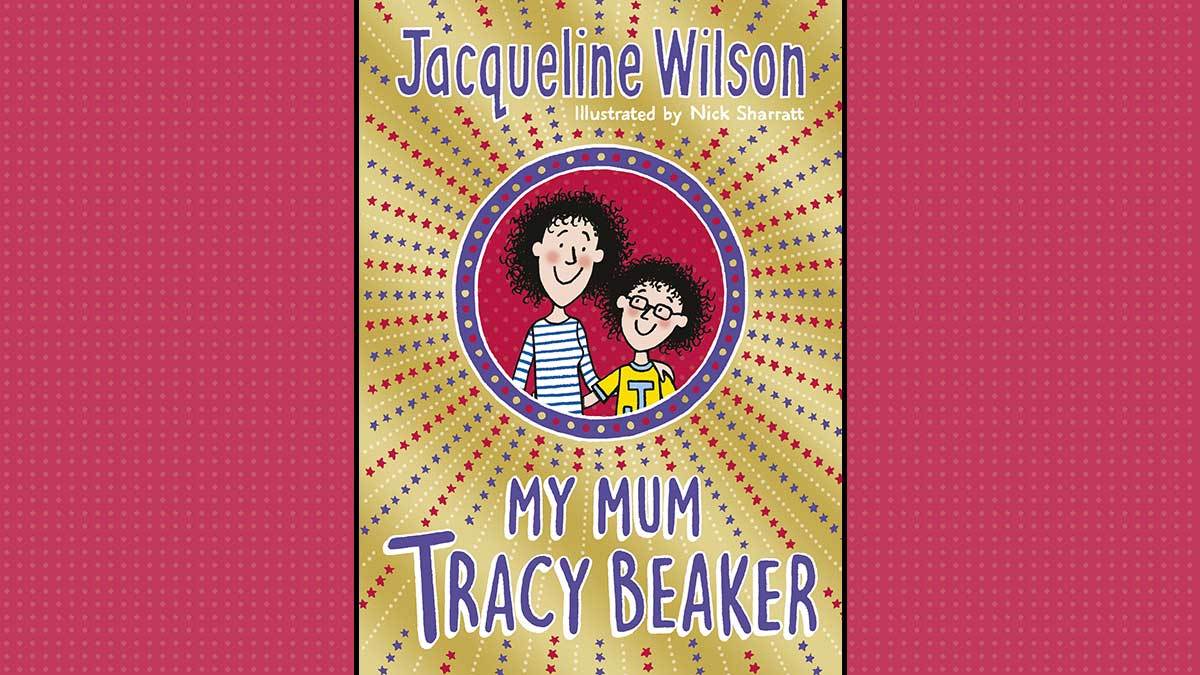Jacqueline Wilson interview: 'It makes me feel so proud if my books help a child'
Published on: 06 November 2018 Author: Anna McKerrow
Readers young and old rejoiced at the news that Tracy Beaker would return in another book by Dame Jacqueline Wilson, and My Mum Tracy Beaker - again illustrated by the marvellous Nick Sharratt - did not disappoint.
We caught up with Jacqueline to find out why she decided to revisit the character, why she would hate to be a teenager today, and how she captures young girls' thoughts and dreams so well...

We really loved My Mum Tracy Beaker, and it was a delight to return to Tracy's world, but seen through new eyes. What inspired you to write about a grown-up Tracy?
I've been joking that I'd have to write about a grown-up Tracy for ages. I'd suggest titles like Tracy Beaker Single Mum and Tracy Beaker's Mid-Life Crisis and Tracy Beaker O.A.P to make people chuckle. Then last year I suddenly thought... why not? I wanted to find out what Tracy would be like too. I always knew she'd be a very caring, loving mum, but I wasn't sure what else would be happening in her life. So I started writing - and it all became clear to me.
Tracy Beaker remains such an important book in accurately representing the life of a little girl in care, and all the difficulties that increasing numbers of children experience. It's also a brilliant and entertaining read.
We still don't see that many children's books featuring children in care or even working class children. Why do you think this is?
I don't really know why there aren't many children like Tracy in books. I certainly wished there were more fictional working class children when I was growing up. I loved Eve Garnett's Family From One End Street and its sequels, and a book called The Binklebys by Ursula Moray Williams, but they were the only books I could find.
In My Mum Tracy Beaker, Tracy sees her relationship with her football boyfriend as a way to give Jess everything she thinks she should have, but it doesn't turn out exactly as she expected.
Do you think there's more pressure on parents to spend more on the latest toys, expensive holidays and activities now?
I think there's enormous pressure on parents to buy expensive treats and toys for their children. It must be hard being a parent nowadays. Sometimes my friends who are grandparents find that young children can be very happy with simple things - a walk in the park to feed the ducks, a story read aloud, a game of Snap or Ludo, a chance to bake a cake together. But when they get a bit older perhaps most children want material things - I don't know, it's difficult to generalise.
Your books are full of different family set-ups and relationships - what feedback do you get back from your readers about the impact of seeing their lives represented?
I get very touching feedback from children, especially when they're going through hard times. It makes me feel so proud if one or other of my books helps a child feel like they're not alone and that it's not their fault.
You are so incredibly skilled at representing the thoughts and outlook of young girls - how do you do it?
I'm lucky to be able to remember vividly what it feels like to be a child. Times have changed considerably, of course, but I still hope I know how primary school-age children think and feel. I'm not so sure about young teenagers, though, when they're seemingly so obsessed by looks and social media. I'm glad I'm not a teenager now - I don't think I'd have coped!
We loved the way you represented Jess and Tracy's relationship. What's important to write about when showing a parent or carer-child relationship?
I wanted to celebrate the close relationship between Tracy and Jess. I thought it was very important to show that Tracy's a great mum (most of the time). I wanted to make it plain that being poorly-parented yourself doesn't mean you can't be a wonderful parent to your own child.
Topics: Classics, Family, Mothers, Personal/social issues, Everyday life, Interview, Features





Add a comment